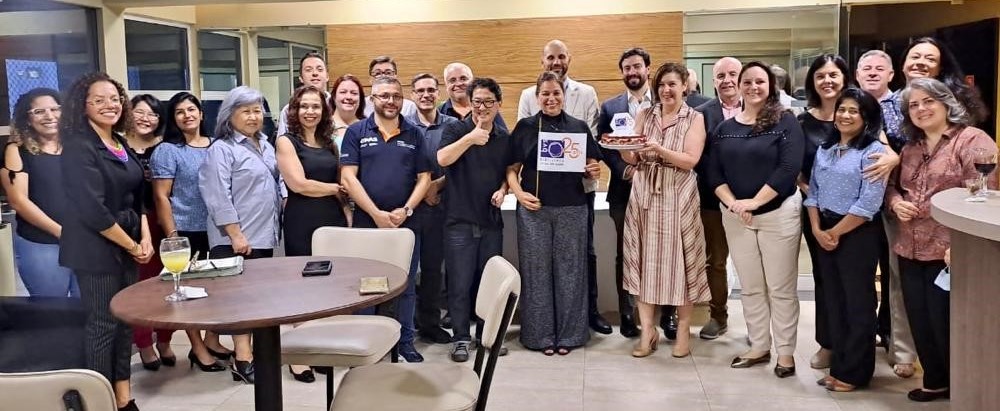On March 3, 2023, the Latin American and Caribbean Center on Health Sciences Information (BIREME/PAHO/WHO) completes 56 years of uninterrupted activity. Its objective is to contribute to the development of the health of the populations of the Americas through the promotion of cooperation among countries and the democratization of access to scientific and technical information, legislation and exchange of knowledge and data for the continuous improvement of health systems, education, and research.
The Centre’s 2022-2023 Work Plan continues to consist of four initiatives – Information and Knowledge Management; Information Services; Intelligence in Information in Health Sciences; and Leadership and Management of BIREME – and 41 Information Products and Services.
BIREME’s main results in the last 12 months include:
- The Virtual Health Library (VHL) has been recognized as a good practice in the 4th volume of the Publication “Good Practices in South-South and Triangular Cooperation for Sustainable Development” of the United Nations Agency for South-South and Triangular Cooperation United Nations (UNOSSC); The VHL Regional Portal brings together 53 sources of information, 35 million records, 14 million registered users and 55 million pageviews.
- Windows of Knowledge about COVID-19; Monkeypox e Health Emergency in the Yanomami Territory were developed to respond to the pandemic and recent health emergencies.
- Support to countries in the Region for the development of national and thematic VHL instances with emphasis on Nicaragua, Bolivia, Paraguay, Guatemala, Colombia, and Honduras.
- Publication of the 2023 version of DeCS/MeSH, including the new TCIM category, as well as the revision of the Public Health and Homeopathy categories. The DeCS/MeSH Finder automatic descriptor location service continues to be used by users from more than 100 countries.
- LILACS continues to be updated as the main index of scientific and technical production in the Region and in 2022 it has surpassed 1 million document records, of which 58% are available in full text. The base currently indexes 897 journals from Latin America and the Caribbean.
- Contribution to update the WHO-led research database: (a) WHO – COVID-19 (WHO COVID-19 Research Database), which in 2019 received the Choice award from the American Library Association. (b) Update of the Global Index Medicus (GIM) through the integration of the regional Global Index Medici. (c) support in updating the ProEthos platform, developed by BIREME in coordination with the PAHO/WHO Regional Bioethics Team to systematize the work of the Ethics Committees in research involving Human Beings.
- Publication of the Open Metadata Portal. Bibliographic metadata, following the LILACS methodology, allow identifying the document’s title, authors, abstract, DeCS/MeSH descriptors, authors’ affiliation, year of publication, and scientific journal.
- Update and maintenance of the e-BlueInfo application version 2.0 with new collections of documents and functionalities and accession of Paraguay in addition to the countries that already participate in the network, Brazil, Peru, Guatemala, El Salvador, and Colombia.
- As products of scientific and technical health information, the Evid@Easy initiative continues to be improved with the guided search function and new Windows of Knowledge and Evidence Maps are being prepared to expand existing collections.
- The Course on Access and Use of Scientific Information in Health has been revised and updated and is published in Portuguese, Spanish, English, and French on the PAHO/WHO Virtual Campus for Public Health (VCPH).
- An Advanced Course on Scholarly Communication in Health Sciences has been published in Spanish at the VCPH, which addresses open science issues, among other emerging topics.
The Director of the Center, João Paulo Souza, on the occasion of the XI Session of the Advisory Committee (AC), held on February 8, presented a proposal to revise the Statute of BIREME, with regard to its installation on the UNIFESP campus, the which was unanimously approved by the AC members. The proposal will be presented on the agenda of the next session of the Organization’s Directing Council.
According to João Paulo Souza, “at the moment when it completes 56 years, BIREME is going through a moment of strategic repositioning to face the challenges and opportunities of the global megatrend of digital transformation, in particular the development and operation of information products with resources of artificial intelligence”.
It is worth mentioning one of the results of the XI Session of the Advisory Committee. When congratulating BIREME for the advancement in technical cooperation products and services, aimed at its continuous development and strengthening, expressed in proposals for a more effective dissemination of its projects, products and services in the countries of the Region, it recommends seeking intersectoral partners, in addition to the need to address strategic issues, in particular, for the implementation of institutional frameworks that define BIREME’s institutional structure in Brazil and throughout the Region.
